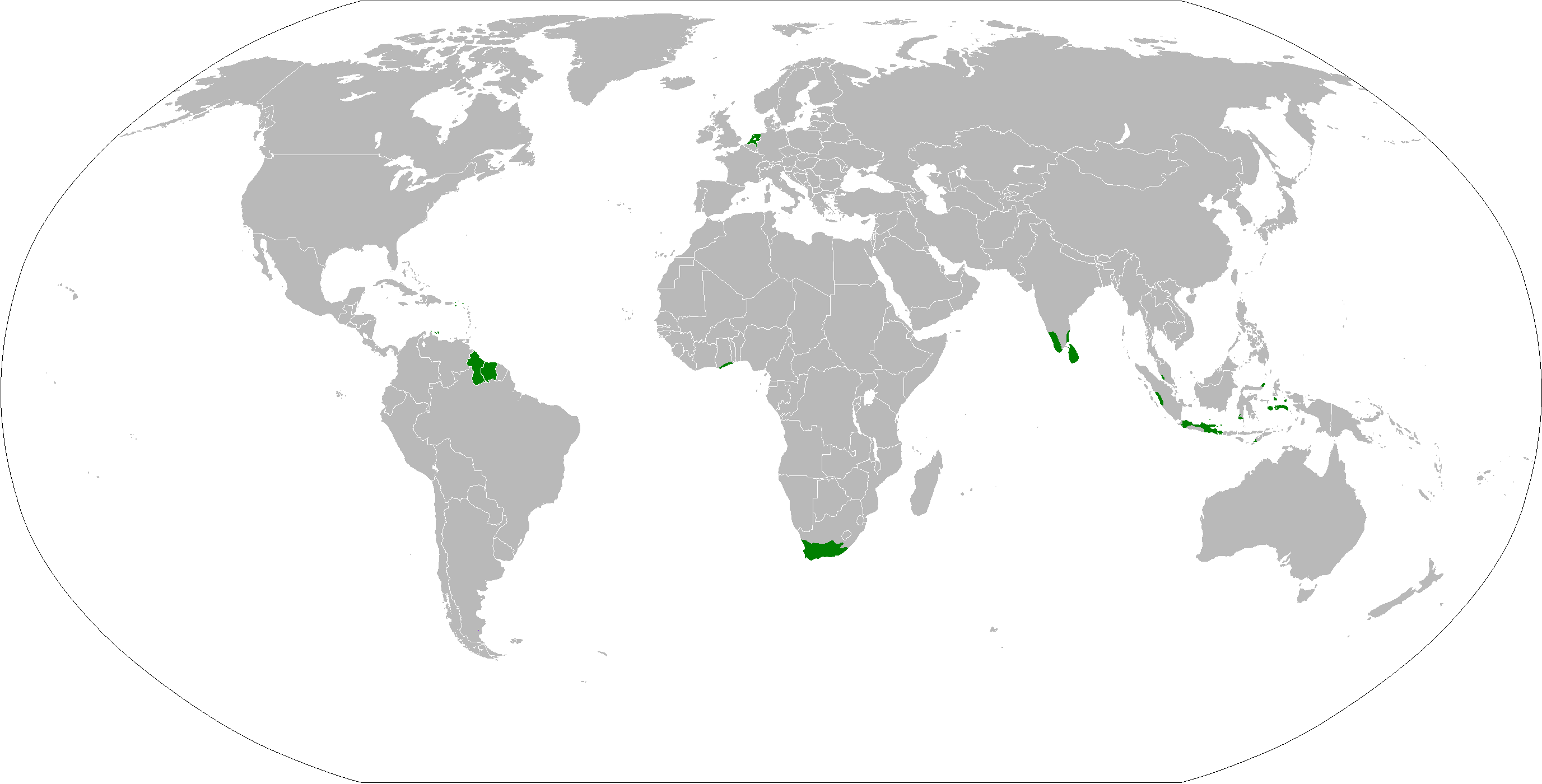Topics on the Page

Overview of Early Modern Empires
Spanish Empire (1492 - 1968)
Portuguese Empire (1499 - 1999)
British Empire (1593 - 1997)
Dutch Empire (1595 - 1975)
Chinese Empire (Qing Dynasty 1644 - 1911)
Mughal Empire (1526 - 1857)
 The Galactic Empire on Star Wars
The Galactic Empire on Star Wars
Overview
Overview of Early Modern Empires
- For the first time in history, each region of the world now interacted with the others."
Slavery in the Ancient, Medieval and Early Modern Worlds describes the history of enslavement in connection to early empires.
This is a map quiz of early modern empires.
 Mapping the Early Modern World
Mapping the Early Modern World
- Students select a country and tell its history/standing in the early modern period.
 Spain, Portugal and the Creation of a Global Economy
Spain, Portugal and the Creation of a Global Economy

Spanish Empire (1492 - 1968)
Spanish Empire in 1606- the map shown on the right
- Spain had a growing colonial empire and they traded silver with its colonies.
June 7, 1494 CE: The Treaty of Tordesillas
- This resource for the Treaty of Tordesillas tells its significance and has settings for the reading level-Educator, Family, and Pre-K.
- The Treaty divided the "New World" into land, resources and people claimed by Spain and Portugal.
- A line was draw in the Atlantic Ocean, 370 degrees west of the Cape Verde Islands.
- All lands east of the line were claimed by Portugal; all lands west of the line were claimed by Spain.
 Text of the Treaty of Tordesillas
Text of the Treaty of Tordesillas
Portuguese Empire (1499 - 1999)

Portuguese Empire, 1415 to 1999
This video summarizes the Portuguese Empire’s history.
Dutch Empire (1595 - 1975)

The Dutch Empire in 1795
- In the New Netherlands, the Dutch constructed villages, making roads and houses made of wood and stone.
- Many people were forced to migrate from Africa to Suriname and forced into slavery.
- People from Asia migrated to Suriname as indentured servants, and eventually made up the majority of its population.
- The Dutch brought over diseases including smallpox, measles, malaria, yellow fever, influenza, and the chicken pox to their colonies in the Pacific and the Americas, decreasing the indigenous populations.
- The creation the Dutch East India company allowed the northern people to expand their territory and gain the title of Empire. Their colonies included Brazil, Taiwan, the Virgin Islands, and Cape Colony.
Click here for a prezi presentation on the Dutch Empire
Multimedia Resource
Click here for a brief video on the start and expansion the Dutch Empire
British Empire (1593 - 1997)

The British Empire Through Time, from Bitesize, BBC
 Cross-Links
Cross-Links
British Empire Summary
- Exploration and colonization was very reliant on royal patronage to get funding.
- England launched the English Armada under the command of Sir Francis Drake. They wanted to destroy Spanish ships, stir revolt in Portugal, and intercept Spanish silver. It was a failure, but guaranteed English as independent from Spain.
- England then began sending settlers to the United States. They originally had good relations with the natives, but eventually the English pushed out the natives and brought in indentured servants to produce agriculture. They were soon replaced by slaves from Africa.
- Reasons for colonial expansion- They wanted to convert the natives and they wanted money through imperial trade.
- Triangle Trade- trade among three ports or regions. Triangular trade usually evolves when a region has export commodities that are not required in the region from which its major imports come.
- Act of Union in 1707 gave birth to Great Britain.
- Seven Years War (1754-1763) led to British victory and saw a great deal of North American territory to Britain from France and Spain.
- Trade with India focused on textiles, spices, and most importantly, tea. East India Tea Company was largely independent and had its own military. The company began levying heavy taxes against the locals. The British forced the Indians to grow Opium instead of food, which led to mass starvation.
Click here for a guide to British territories, colonies, and possessions
Click here for an online book on the Expansion of the British Empire
 Multimedia Resources
Multimedia Resources
Click here for a ten minute video of the Early British Empire
 Learning Resources
Learning Resources
Click here for a lesson plan on British attitudes towards India
Click here to read "The White Man's Burden" by Rudyard Kipling
Click here for a lesson plan that allows students to map early modern empires digitally.
Chinese Empire (Qing Dynasty: 1644 - 1911)
The Story of China, PBS
Multimedia Resource
Click here for a 3 minute history on the Qing conquest of the Ming Empire
Mughal Empire (1526 - 1857)
Link to Indian History to 1700
Africa
https://giphy.com/gifs/may-the-4th-curtains-cool-aG5upLcu4RkhjjYZ1Y
How Africa's Colonial History Affects Its Development tells Africa’s colonial history and how it has affected its economy.
 . The Galactic Empire on Star Wars
. The Galactic Empire on Star Wars
Recreated flag of the Galactic Empire in the show 𝘖𝘣𝘪-𝘞𝘢𝘯 𝘒𝘦𝘯𝘰𝘣𝘪.

Emperor Palpatine's Sith robes from Star Wars: Episode VI – Return of the Jedi

The Galactic Empire was oppressive dictatorship that ruled through a combination of military might, spy technologies, and powerful space weapons including the Death Star.
 Galactic Empire: The Imperial March
Galactic Empire: The Imperial March
The Science of Star Wars, Georgia Tech University
Comments (0)
You don't have permission to comment on this page.